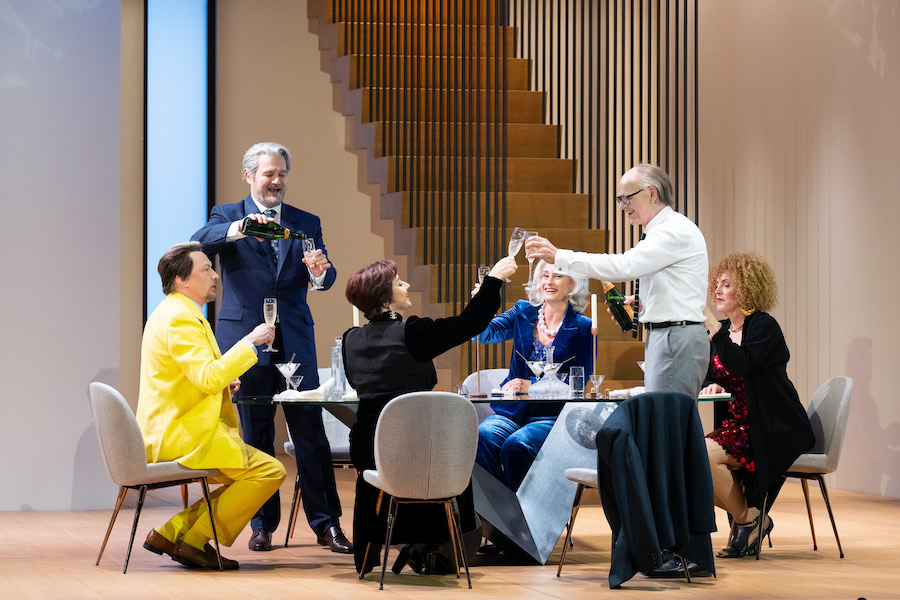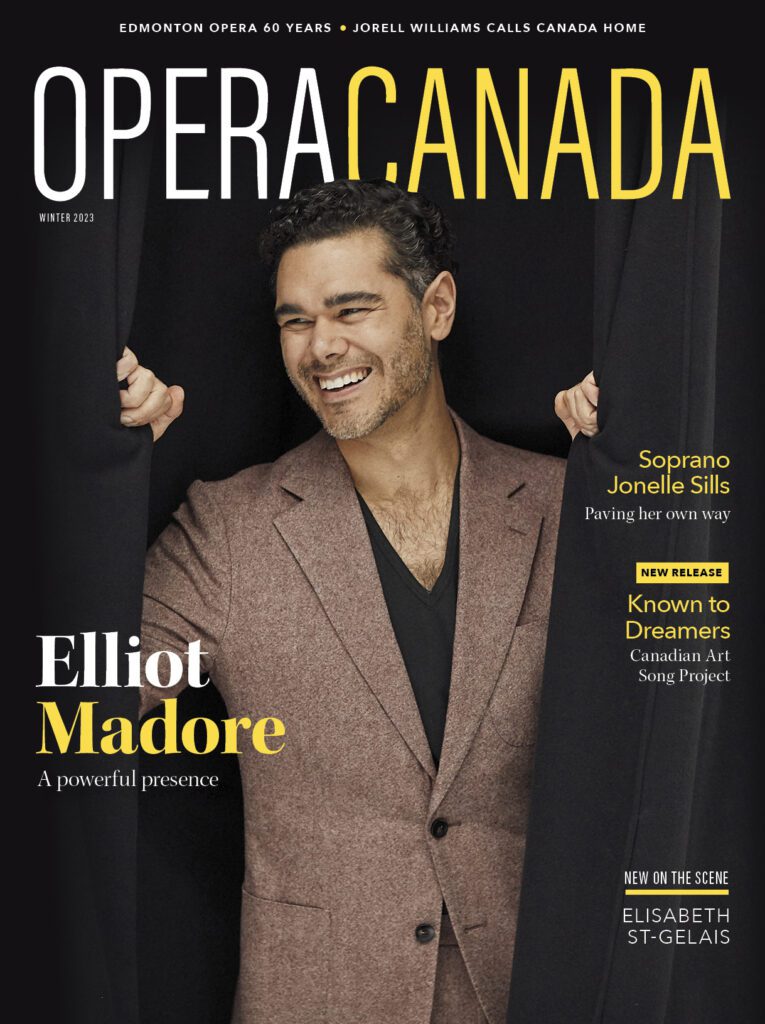Mozart’s Così fan tutte is emblematic of the Festival d’Aix en Provence. It’s the opera that opened the festival in 1948 and has been one of the most frequently performed over the 75 years of the festival. It has also received the most prestigious treatment, with the conductors ranging from Hans Rosbaud to Michael Gielen, Sergio Baudo, Charles Mackerras, Jeffrey Tate, and Daniel Harding. There were stage designs by the great Polish-French painter Balthus in 1950 that are now museum pieces, and Patrice Chéreau‘s 2005 production with a stellar cast including Elīna Garanča, Erin Wall, and Ruggiero Raimondi left an indelible memory. Chéreau recognized the work’s extreme difficulty: “It’s over three hours long, the size and density of a small Wagner opera, and outrageously complex.” But his production was not unanimously loved; critic Christian Merlin of the daily newspaper Figaro commented at the time, “Chéreau doesn’t have much to say about Cosi.” One might sense the same about Dmitri Tcherniakov and conductor Thomas Hengelbrock‘s new production.
The Russian director’s concept involves two couples in their fifties, who searching to break the routine of their lives, decide to spend a weekend at the home of a third couple, Don Alfonso and Despina—gone the disguises, fake mustaches, false deaths, and marriage contracts. No one is duped; everyone witnesses everything in this glasshouse set reminiscent of Michael Haneke‘s 2013 Così in Madrid. We see the old lovers trying to reignite their passion by playing games: soldier, doctor, travesty, and of course, infidelity. And though it’s sometimes quite a stretch, the libretto does accommodate these twists. But is making Cosi believable at all costs an interesting or viable concept? From its creation in 1790, Così was never meant to be believable, but the emotions of love, jealousy, and disillusionment were and are very real, and the sublime arias still play on our heartstrings. Unfortunately, music has a second role in this production, and our frustration with the vocal shortcomings are hardly mitigated by the argument that the director deliberately chose singers beyond their prime to match his script. The other problem is that only half of the cast is truly capable of responding to his ambitious playbook.
Luckily, thanks to Georg Nigl‘s Don Alfonso and Nicole Chevalier‘s ingenious Despina, and Russell Braun‘s Guglielmo, there are good moments. Nigl is an exceptional actor, and even if he slips into “sprechstimme” sporadically, his ease and overall performance are riveting. Chevalier forms a convincing partner in crime with her confounding vocal and dramatic prowess. Russell Braun is a consummate actor and an artist who continues to astound with his range of roles, from Don Giovanni and Eugene Onegin to extremely taxing roles by contemporary composers like Peter Eötvös and Kaija Saariaho. And no worries, his Mozart roles are still top-notch; his Guglielmo is smooth, beautifully phrased, with impeccable breath control—no excuses necessary.
Rainer Trost is touching as Ferrando in his wavering “Un’aura amorosa,” and he comes across well as the introvert of the group. As for Agneta Eichenholz, it hardly seems fair to have her sing Fiordiligi; even if she matches Tchernikov’s scheme, her vocal line is imprecise, and she’s often short of breath. She’s not helped by Hengelbrock’s erratic conducting or the imprecise horns and raw woodwind sections of the Académie Balthasar Neuman Orchestra in “Per pietà.”
Claudia Mahnke manages better overall with the less-demanding role of Dorabella, but both women are ill at ease as they go around in circles to replay the same role-playing again and again in this three-hour-long therapy session. No wonder when the drizzle began at 1 am, one started to search for a means of escape from the cuckoo’s nest. But after a 15-minute pause, it all resumed, taking a violent turn when Don Alfonso begins to humiliate and physically torture the four protagonists. (Closer to Haneke’s Funny Games than his Così fan tutte.) Then Despina takes the shotgun the two have been brandishing all evening and shoots Don Alfonso point blank. In 75 years of producing Mozart’s late masterpiece at Aix, this is undoubtedly as close as anyone has come to killing Così.
Related Content ⬇
Opera Canada depends on the generous contributions of its supporters to bring readers outstanding, in-depth coverage of opera in Canada and beyond. Please consider subscribing or donating today.









